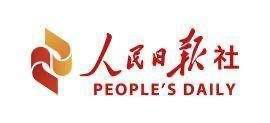On September 23, Chinese President Xi Jinping reiterated the position he has taken consistently: multilateralism, international cooperation and re-enforcing the role and leadership of international institutions, be it the United Nations or the World Health Organization (WHO).
In fact, President Xi’s UN speech echoed what he said on May 18 at the World Health Assembly, that the international community should financially and politically support the WHO now more than ever, and that multilateralism is crucial for preserving globalization and international cooperation, and that no one country can address or solve the challenges being faced by the world today.
Antonio Guterres, the UN secretary general, concurred with President Xi, especially on his references to multilateralism as the way forward and the pressing role of the UN after the coronavirus pandemic.
A particularly key point of Xi’s speech was his reference to big power competition, which he said should be “healthy” and “positive” and should not compromise on “international norms.”
Alluding to the China-U.S. competition which has increasingly turned confrontational, this policy statement of President Xi indicates the continued willingness of China to constructively engage, cooperate and compete with the United States, within parameters of diplomatic and international norms, which recently have been tested and called into question.
Xi also reaffirmed that the top priority of the Chinese leadership is poverty alleviation, as opposed to global leadership. Next year, on the centennial anniversary of the Communist Party of China (CPC), China aims to eradicate poverty in its totality, to honor the memory and purpose of founding members of the CPC who had vowed to do so when they established the CPC.
While Xi’s policy statement showed willingness to engage with openness, he reiterated the red lines that are China’s core interests, by referring to “firmly defending” China’s sovereignty.
These core interests are Taiwan, Tibet, Xinjiang, Hong Kong and the South China Sea, where China has been facing external interference. The speech shows that while China will continue to focus on economic development, its core interests are not fair game and are “off-limits.”
U.S. President Donald Trump’s speech, on the other hand, was also a continuity of his politicizing the COVID-19 pandemic, deflecting what critics call his own inept handling of the virus by criticizing China, and accusing the WHO of being partisan to China.

Trump has been playing to the gallery, by deflecting blame of mishandling the pandemic spread and miscalculating its gravity, creating an external threat perception, and invoking fear in Americans that China is the primary national security and economic threat that the U.S. faces and only his strong leadership can protect the U.S. and Americans from it.
While Trump’s speech may have short-term political gains for his re-election, there are long-term unintended consequences of the position he has taken, which are gradually eroding the U.S.’ national interests.
Much of the power that the U.S. projects is derived from carefully crafted international partnerships and multilateral institutions which the U.S. has helped establish, foster and finance, that are courtesy of Trump’s unilateral positioning, leaderless and in jeopardy.
Trump is attacking the very institutions that the U.S. has used to institutionalize “American exceptionalism”: United Nations, World Trade Organization, Transpacific Partnership Agreement and many others.
The United States has led the global response to polio, Ebola, global conflicts in the Middle East, Asia or Africa, and according to a 2017 Brookings report, the largest donor in the world, accounting for 20 percent of foreign aid. The COVID-19 pandemic is an inflection point for U.S. global leadership, where for the first time, the U.S. has had an insular response, and China has done what would have traditionally been the role of the U.S. The American body politic and the military establishment have to decide whether short-term partisan political interests can be allowed to trump long-term state interests.
A country can only project external power and have a robust foreign policy when it has domestic stability and a strong economy. The U.S. should follow China’s example, and consolidate domestically, addressing the racial, economic and political schisms that have expanded during the Trump presidency, and only subsequently look outward.
Mustafa Hyder Sayed is executive director of the Pakistan-China Institute.
Cgtn.com
 Africa -China Review Africa -China Cooperation and Transformation
Africa -China Review Africa -China Cooperation and Transformation
